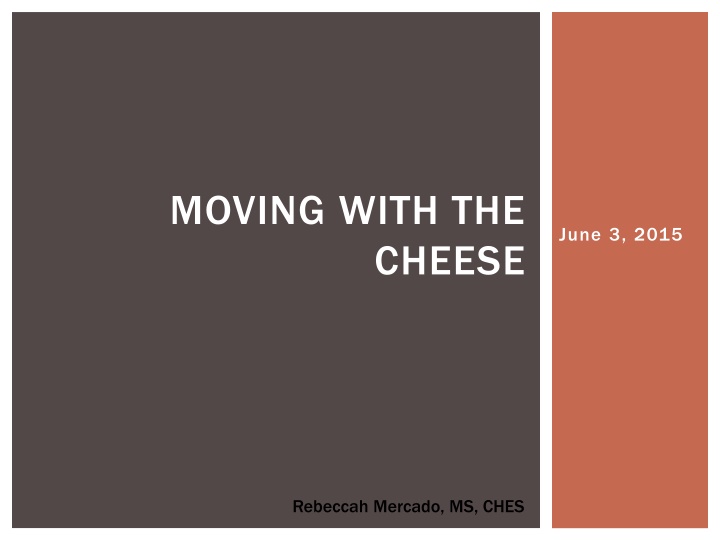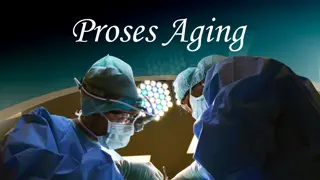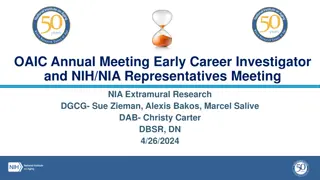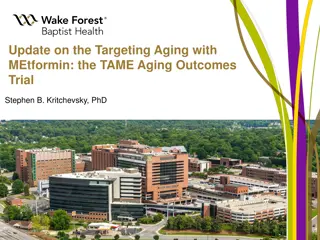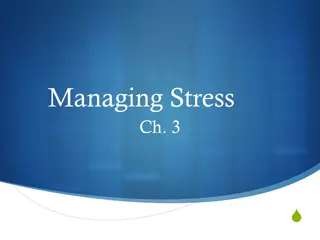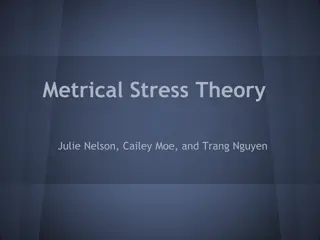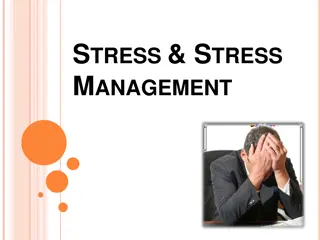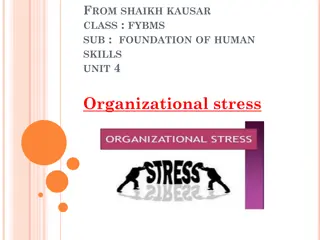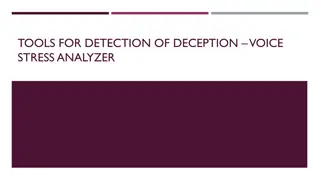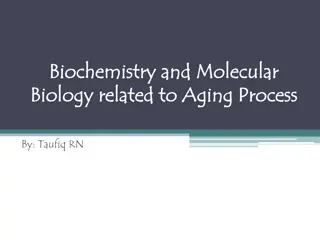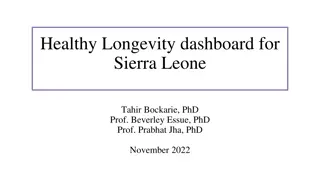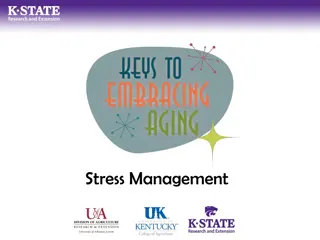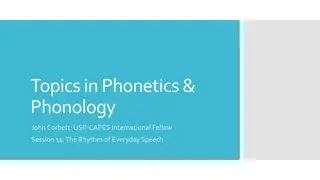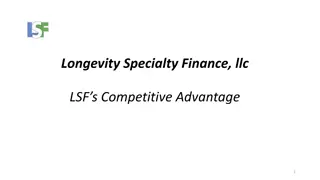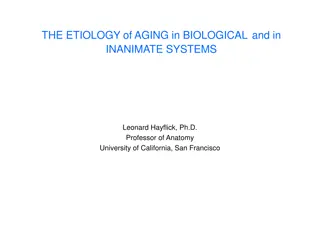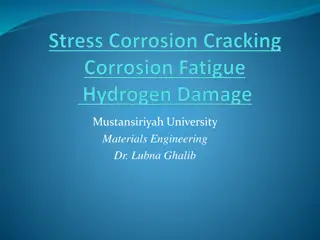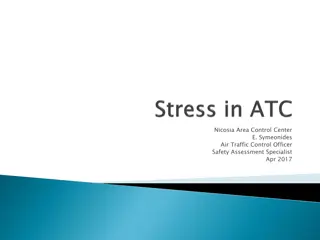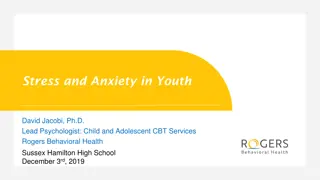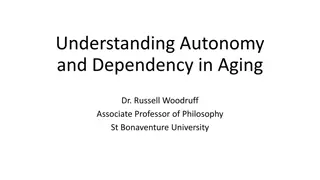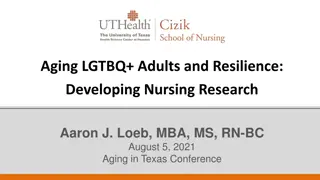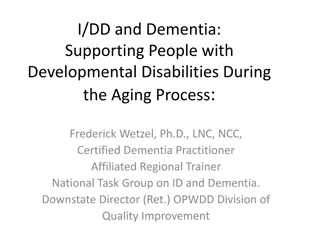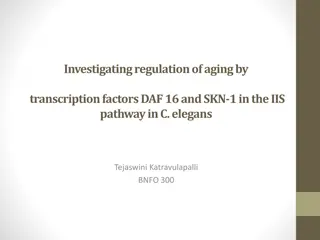Aging, Stress, and Longevity Factors
Delve into the complex nature of aging, from genetic influences to the impact of chronic and acute stress on health and lifespan. Learn about the interplay between biological processes, environmental factors, and personal resilience in the quest for understanding longevity. Explore the role of DNA, cellular aging, and stress management strategies in promoting healthy aging and overall well-being.
Download Presentation

Please find below an Image/Link to download the presentation.
The content on the website is provided AS IS for your information and personal use only. It may not be sold, licensed, or shared on other websites without obtaining consent from the author.If you encounter any issues during the download, it is possible that the publisher has removed the file from their server.
You are allowed to download the files provided on this website for personal or commercial use, subject to the condition that they are used lawfully. All files are the property of their respective owners.
The content on the website is provided AS IS for your information and personal use only. It may not be sold, licensed, or shared on other websites without obtaining consent from the author.
E N D
Presentation Transcript
MOVING WITH THE June 3, 2015 CHEESE Rebeccah Mercado, MS, CHES
WE ARE ALL AGING Aging is hard to study Many factors involved Not sure why we die incrementally Only have probabilities, certainty is a mirage Planned obsolescence Ways to study aging: Extreme human conditions (Everest base camp, Space Station, Saskatchewan) Longitudinal studies
NATURE OR NURTURE DNA / Genetics A blueprint A starting point Epigenetics switching on and off of gene expression Everything that happens to us is potentially life altering We think longevity is probably 70 75% lifestyle Dr. Brooks-Wilson
AGING OR RUSTING Daily metabolism creates cellular garbage, eventually can t sweep it all away Oxidative damage Stress Inflammation Chronic disease Organ failure or system failure
CHRONIC STRESS Chronic stress is harmful Increased risk of cardiovascular disease, Impaired immune function High blood pressure Inhibited DNA repair Increased risk of dementia Elevated blood-glucose levels Widespread inflammation Perceived lack of control = added stress British study of office workers The dominant baboon enjoys untroubled sleep Robert Sapolsky, Stanford Neuroendocrinologist
ACUTE STRESS Acute stress is good for us Challenge yourself master something difficult Adversity Theory: resilience is learned by facing hardship and overcoming it mild version = suffering often leads to growth extreme version = we MUST suffer to reach the pinnacle of human flourishing Saskatchewan Effect Optimal time (sensitivity) for this type of growth late teens through early thirties
WHAT IS YOUR AGE? Chronological age Biological age what you can still do? Biological clock Protein cap that seals the end of the chromosomes = telomere Telomeres protect the DNA Every cell division slices off some of the cap Eventually the cell dies = age related disease Telomere length is set at birth Life circumstances can change the burn rate
THE BRAIN All natural blessings are either mental or physical Galen Bodily fitness & mental fitness work together the goal is to bring them into tune Plato Neuroplasticity Brain can rewire/retrofit Mental rehearsal Mindfulness Meditation
WHAT CAN WE DO? Sleep Sleep deprivation guts working memory & shortens life Study of 15,000 US nurses (2012) Sleep/stress aids Diet Nutrients Fatty acids No refined sugars, processed foods, etc. Hydration
WHAT CAN WE DO? Travel Enriched environment Sensory stimulation (taste, smell, sound, customs) Orienteering challenge navigating a new place, going new ways Leaning languages Exercise Heavy artillery against cognitive decline Sudoku is a shovel vs. exercise Dr. Vaillant The whole brain blooms It adds life to your years Makes every other good habit more potent synergy effect
REFERENCES Grierson, B. (2015). What makes Olga run?: The mystery of the ninety-something track star and what she can teach us about living longer, happier lives. New York, New York: St. Martin's Griffin. Levine, J. (2014). Get up!: Why your chair is killing you and what you can do about it. New York, New York: Palgrave MacMillan. Swanson, L., & Vernikos, J. (2014). Scared sitless: The office fitness book. Seattle, WA: Elless Media, LLC.
CONTACT INFORMATION Rebeccah Rebeccah Mercado, MS, CHES Mercado, MS, CHES Research Coordinator, General Pediatrics Program Coordinator, Center for Digital Health & Wellness PhD Student, College of Health & Human Performance (407) 383 (407) 383- -8919 rebeccahmercado@ufl.edu rebeccahmercado@ufl.edu 8919
